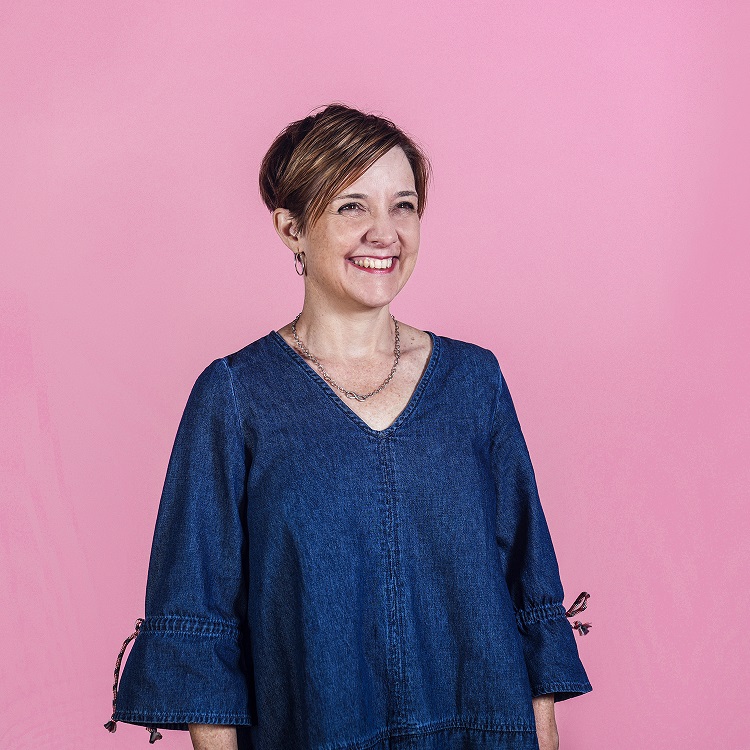Meet Steph Kehoe, Course Coordinator of the BFA (Theatre) at the University of Melbourne

Steph Kehoe has worked as a teacher, director and performer in Australia, Europe, the Americas and Asia. She trained under Jacques Lecoq at Ecole International de Théâtre Jacques Lecoq and completed her teacher training in the Lecoq pedagogy under Thomas Prattki at the London International School of Performing Arts. Here, she generously shares some insights into her performance and teaching practice, and the Bachelor of Fine Arts (Theatre).
In a few sentences can you tell us about who you are and what you stand for?
I teach movement, mask, acting and devising in the Theatre department and I co-ordinate the Bachelor of Fine Arts (Theatre) – a training course for artists who want to make as well as perform original work.
I trained in France and then worked for a number of years as a performer and director before discovering that I felt most stimulated and creative when working with students.
In a time when the world was a bit simpler than it feels right now, I was lucky enough to work in many countries around the world – across Europe, South America and in Asia – making work with local artists and communities in all sort of places and contexts, usually outside of conventional theatre spaces.
There will undoubtedly come a time for artists to go out into and towards the world again but for now, we are all learning together how to delight in what is local.
Is there a philosophy or piece of advice that has held you in good stead throughout your career?
My teacher Jacques Lecoq said that sometimes artists worry too much about expression and can sometimes forget that that there is a step that precedes expression – and that is impression – we need to be "impressed upon".
We need to train to look deeply at the world and pay attention to its daily miracles and its endless perfectly constructed comedies and dramas.
There is much to be learnt and felt in the rhythms, harmonies and disharmonies that surround us. Luckily, we have a lifetime to work out how to express our responses.
Another wisdom that rings true for me is Picasso’s "Perhaps inspiration does exist – but it can’t find you if you aren’t working". There is an element of art training and art practice that is about showing up, doing the work and committing to the act itself.
In your opinion, what’s the best thing about working at the VCA?
The students! The fact that year after year students travel from all round Australia, and from abroad, to train at the VCA is testament to their own wonderful optimism and courage and a counter-cultural impulse that is a joy to be around. Our students are funny, poetic, generous and engaged – this is what makes teaching at the VCA such a pleasure!
What makes a good theatre student in your opinion?
To be "an articulate expresser of alternate worlds", as the great American director Anne Bogart calls theatre makers – it helps to be curious about the world as it is.
As well as curiosity, theatre students need to be collaborative, humble and pleasure-seekers. They need to be able to follow their bliss, play and find joy and pleasure in the unknown of creation.
What do you think is world-changing about theatre?
I am not sure if theatre is world-changing or just an integral part of a world that is always changing? I think that theatre reflects the world and responds to the world and because the world is itself ever changing, theatre is always part of all of this constant and inevitable change.
There have been studies done that show that the heart beats and breathing patterns of people watching a piece of theatre actually begin to synchronise. This might happen in a theatre, sitting beside one another.
But this isn’t the only space or form in which theatre can make bring people together – if a piece of theatre is doing its work well, heartbeats can come into sync even at a great distances from one another and in new forms and ways.
Theatre is creating or witnessing something together with others, becoming one with another through a shared experience.
What excites you about your field?
Almost everything! I am very excited to work with the next generation of theatre artists who are in the process of discovering for themselves, and then sharing with us, their own theatre – "theatre that doesn’t yet exist".
Whether in the studio in training or in the rehearsal room, we are working right at the exciting edge of things, with what doesn’t quite exist yet. Themes, characters, stories and worlds are emerging, the invisible spark of an idea, thought or sensation taking a physical form – what an exciting place to be!
One of my teachers reminded me recently that the etymology of the word theatre is "the seeing place – a place where we have visions". I hope that VCA Theatre is a space for our students in which they are supported to have visions and a place from which they will leave ready and able to share what they see, imagine, dream and yearn for with others.